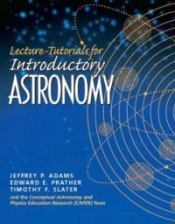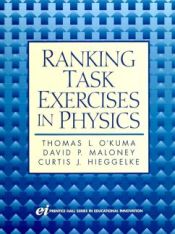


These workshops are targeted for college instructors of 100-level astronomy classes and high school instructors who presently teach astronomy or may be interested in developing an astronomy course. They have three goals: 1) to acquaint educators with the new innovative usages of instructional technology in astronomy education, 2) to introduce new developments in the UNL Department of Physics and Astronomy, and 3) to bring together members of the astronomy and physics teaching community to share ideas and identify potential collaborators.
Attendees should park in the Stadium Drive Parking Garage (free on week-ends) which is immediately southwest of the stadium. You are then about 2 blocks from Avery Hall which is immediately southeast of the stadium. Both Avery Hall and the Stadium Drive Parking Garage can be found on the following set of campus maps which allow one to magnify a region by clicking on it.

Workshop Agenda8:45 Registration, Donuts, Coffee, and Socializing9:00 Opening Remarks9:10 Science Talk: "The Science of Hubble, Chandra, & Spitzer" - Steve ShawlAbstract: NASA's Great Observatories included not only the Hubble Space Telescope (HST) but also the Compton Gamma-Ray Observatory (CGRO), the Chandra X-ray Telescope, and the Spitzer Space Telescope. Together these telescopes covered the electromagnetic spectrum from gamma-ray (CGRO) to x-ray (Chandra) through the UV, visible and near IR (HST), out to the infrared (Spitzer). This talk will be a travelog of some exciting results from each of the Great Observatories with great images (like this one) and some discussion of the science. 
10:15 Workshop: Lecture Tutorials in Astronomy - Ed Prather & Steve ShawlThe Lecture Tutorials are introduced with a discussion of the goals (based on educational research) behind their construction. Workshop participants will then break into groups and actually do a couple. A discussion of how these are used are used in the classroom with input from faculty who have used them will follow. Description of the Lecture Tutorials in Astronomy: Lecture-Tutorials for Introductory Astronomy is a collection of classroom-tested activities suitable for any astronomy class. The Lecture-Tutorials are short, structured activities designed for students to complete while working in pairs. Each activity targets one or more specific learning objectives based on research on student difficulties in astronomy. Most activities can be completed in 10 to 15 minutes. 11:45 Lunch - Selleck Private Dining Hall (Vegetarian and Vegan Entries provided at every meal) |
 1:00 Workshop: Ranking Tasks in AstronomyEd Prather will discuss the ideas behind ranking tasks and ask attendees to complete some of the astronomy ranking tasks he has developed. Description of the Ranking Tasks in Physics: A unique resource for physics instructors who are looking for tools to incorporate more conceptual analysis in their courses. This supplement contains approximately 200 Ranking Task Exercises which cover all classical physics topics (with the exception of optics). Ranking Tasks are an innovative type of conceptual exercise that asks students to make comparative judgments about a set of variations on a particular physical situation. Those who have used Ranking Tasks have found that they frequently elicit students' natural ideas, rather than a memorized response, about the behavior of a given physical system. In addition, asking students to consider the same situation in a variety of ways often helps them begin to correct any misconceptions they may have: When students realize that they have given different answers to variations of the same question, they begin to think about why they responded as they did in each case. This, in turn, prompts them to consider which responses they believe in more strongly, and why. |
1:30 Presentation - Interactive Assessment - Kevin Lee, Chris Siedell, & StudentsThis presentation will detail some recent efforts to implement ranking tasks and similar question types into our web-based assessment engine EDU (click here to see a screenshot of a ranking task in EDU). We hope to incorporate these into the assessments of the Nebraska Astronomy Applet Project shortly. |

2:00 Computer Lab: Using ClassAction Materials - Kevin Lee, Todd Young, & Ed PratherThe ClassAction Project is creating a computer database of conceptual questions for use in collaborative student discussion and interactive voting in the introductory astronomy classroom. The databases are programmed in FLASH and are designed to be projected to a class using a computer video projection system. Separate FLASH modules are being created for each major topic area in astronomy and instructors may conveniently select from a variety of questions in each module. The questions are carefully designed to focus on tenacious student misconceptions. Most question prompts include animations, diagrams, and images that students must interpret when answering. The questions are also dynamic in that instructors have the capability to easily recast them into alternate forms based on their own preferences and feedback from the class. Considerable resources are available to the instructor to provide feedback in the form of outlines of information, images, and animations. This workshop will discuss the benefits of using interactive engagement techniques and give attendees an opportunity to work with ClassAction in the computer lab. |

2:55 Wrap-up and door prize raffle (must be present to win!)We will have some concluding comments and then raffle off a lot of really good astronomy related stuff. Most of it really is pretty good. Or at least some of it is good. OK, OK none of it is really all that good! But you're missing the point --- here is a chance to win some free stuff! |

This event is open to local high school and college astronomy and physics instructors and undergraduates interested in pursuing careers in science education who register in advance. (If high school instructors wish to bring a student who is interested in pursuing a career in science education that is acceptable, but we ask that you carefully scrutinize whether they would benefit from the workshop.) You may register by email or by phone at 402-472-3686. There is no cost for the workshop, lunch is provided, and reimbursement will be made for travel costs up to $50. All registered attendees will receive copies of all instructional materials including Lecture Tutorials in Astronomy, Ranking Tasks in Physics, the ClassAction CD, and a CD of all of the images from Dr. Shawl’s presentation.
This workshop is sponsored by the UNL Center for Science, Mathematics, and Computer Education and the UNL Department of Physics and Astronomy. Educational materials have been provided by Prentice Hall Publishing.
